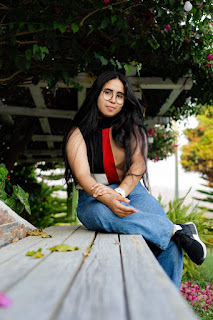By Jessica Noviello, via womeninplanetaryscience.wordpress.com
When I defended my Ph.D. in June 2019, I didn’t have a job lined up. Part of this was because I was ignorant of the ebbs and flows of the academic job market, but mostly it was because I could not decide what I wanted to do next. My graduate school experience had been unusually bumpy, and the entire process and the inherent instability of research made me reluctant to remain in academia. But what else could I do? A professor in the department offered me a short-term postdoctoral research position to help him finish a project, and I took the job so I could have income while I figured out a plan.
This postdoc saved my career. Besides learning how to do geophysical modeling, I started branching out into formal science communication work, even founding a group to do this work within NExSS, the NASA Astrobiology research coordination network that focuses on exoplanets. ... This job had a time limit on it though. I realized I liked research, but I loved solving problems that involved people and their research, so I started exploring science management opportunities.
In July 2020, I applied for the NASA Postdoctoral Management Program (NPMP) fellowship to continue my work with NExSS and formally expand my research interests to exoplanets. The NPMP is a subset of NASA Postdoctoral Program (NPP) fellowships and explicitly aligns the fellow to a management project or initiative. The fellowship I applied to was created to support the Co-Leads of NExSS with planning events, facilitating communication, and presenting to stakeholders. I started my fellowship in January 2021 at NASA Goddard, and since then, I’ve met and worked alongside many fantastic exoplanet scientists from the fields of astronomy, planetary science, and astrobiology on some pretty awesome projects and ideas. But like most postdocs, I always had one unignorable thought in the back of my head: what comes next?
There are many reasons for leaving research that stem from systemic problems with the structure and demographics of traditional academia. We all know that jobs in academic spaces are becoming increasingly competitive, and soft money research positions are precarious. Many of us devise backup plans, some in jest and others much less so, in case “research doesn’t work out.” I never knew what it truly meant to “go into industry”, nor did I know where to start looking for those kinds of jobs. What about careers in science journalism? Or science policy? Or the steps to become a professor, if I decided academia was a good choice for me after all? What were those careers like on the inside? I figured if I had these questions, then other early career researchers might have them too. And thanks to the fellowship I was on, I had the time and job scope to work on a solution.
I created the Professional Advancement Workshop Series (PAWS) to provide the space to answer these questions and a central location to collect resources, regardless of an early career researcher’s institution, degree program, geographical location, advisor, or field.
Read more at








